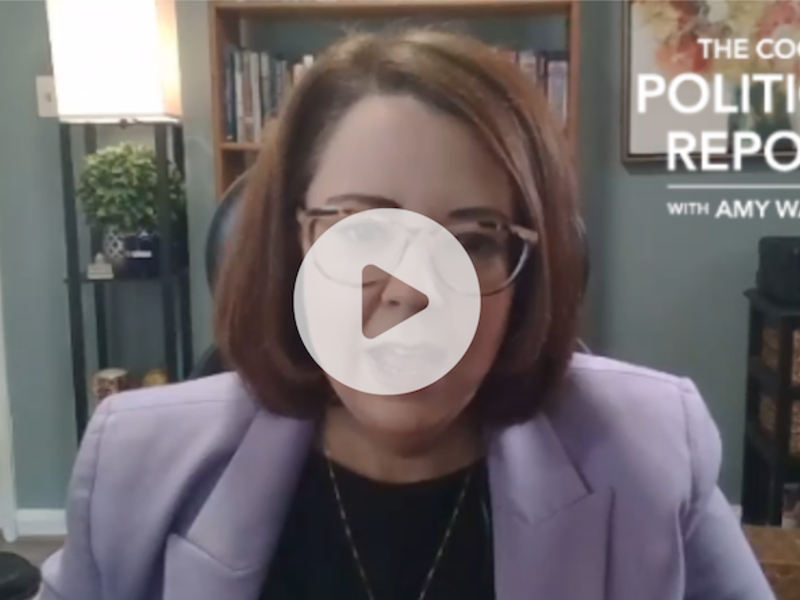
The fight over the House majority is hardly a done deal, but it’s safe to say that GOP control is in increasing jeopardy and worries among Republicans for their Senate majority are growing.
Republican concern over House losses begin with open seats—they have 38 members not standing for reelection, either retiring or running for other offices, to only 18 for Democrats. Obviously open seats in safe districts don’t matter much, but in more hostile terrain, they are key. Cook Political Report House Editor David Wasserman points out that “since 1990, in cases where a House member of the president’s party has not sought reelection two years after the president lost his/her district, the party has batted 0 for 23 attempting to defend the seat.”
Given that there are eight open Republican seats in districts carried by Hillary Clinton in 2016, that means that if this pattern holds, Republicans could lose a third of their narrow advantage without a single incumbent losing. These seats are Arizona’s 2nd District, California’s 39th and 49th Districts, the 27th District of Florida, Pennsylvania’s 5th, 6th and 7th Districts, and the 8th District of Washington state. There are another eight open GOP districts where Trump took 55 percent or less of the vote.
Overall, Republicans have eight districts that are rated as either Lean or Likely Democrat, according to The Cook Political Report, and another 21 are rated as Toss Ups, bringing the even-money-or-worse total to 29 GOP seats. Another 27 are rated Lean Republican, and 28 additional GOP seats are in the Likely Republican column—not currently considered competitive, but definitely on the watch list. Conversely, there is just one Democratic seat rated as either Lean or Likely Republican (Pennsylvania’s 14th District is in the latter column), and two are Toss Ups (Minnesota’s First and Eighth Districts, both open seats), for a total of three even-money or worse. Three more Democratic seats are in that Lean Democratic competitive column, and another 10 are in the Likely Democratic category. That totals 56 GOP seats considered competitive or worse, to just six for Democrats.
This is the kind of thing that happens when a party has a challenging year—they have seats in play that they would not have to worry about in a level-field election. When a party holding the White House, particularly if they control both the House and the Senate, is having a tough midterm year, their problems tend to cascade, mounting up in an unmerciful way. Democrats can wax less-than-nostalgically about how bad things were for them in 2010 and 2014, President Obama’s midterm elections. Republicans have to look all the way back to President George W. Bush’s second midterm in 2006 to find comparable headwinds, and only 27 percent of current GOP House members were in that disastrous election.
As the election gets closer, the besieged party’s House and Senate campaign committees and respective governors association take on the role of a MASH unit, employing triage to separate those who probably can’t be saved, assume another group will likely survive without additional national resources, and then concentrate their money and effort to save those in the middle group that desperately need help but aren’t lost causes.
On Wednesday’s MTP Daily show on MSNBC, host Chuck Todd asked Steven Law, president of the Senate Leadership Fund, the primary GOP super PAC responsible for defending the Republican Senate majority, about the conundrum that party leaders, strategists, and donors face in such a tough environment. In a follow-up email, Law, a former chief of staff for (and still confidant of) Senate Majority Leader Mitch McConnell wrote, “Regardless of how you measure the odds of holding on to the House, it would be a mistake to just give up because in this business it matters where you return the kick from. Losing a lot of seats is a lot harder to make up than losing a contained amount.”
That is a good point: The depth of the hole that House Republicans could end up in matters, as it determines how much they would need to pick up in subsequent elections. However, Law added, “the troubles we face in the House also make it absolutely critical that we hold on to the Senate as a firewall.” On MTP Daily, Law specifically mentioned the role of the Senate in confirming federal judgeships, particularly any Supreme Court vacancies that might occur.
With just over six months to go before the election, many things can still happen that could push the tide either way. For Republicans that means hoping and praying for the best, but preparing for the worst. For Democrats it means not thinking small, looking beyond the obvious possible pick up seats to spot secondary and tertiary targets if things were to get even better. This is quite a year.
This story was originally published on nationaljournal.com on April 26, 2018











Subscribe Today
Our subscribers have first access to individual race pages for each House, Senate and Governors race, which will include race ratings (each race is rated on a seven-point scale) and a narrative analysis pertaining to that race.